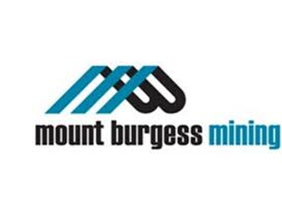Highlights
- Church & Dwight’s current value assessed
- Stock trades below estimated intrinsic value based on forecasted earnings
- Listed on NYSE kComposite and S&P 500
Church & Dwight Co., Inc. (NYSE:CHD) operates within the consumer goods sector, known for its portfolio of household and personal care products. The company is listed on both the NYSE Composite and S&P 500, reflecting its role in a stable segment of the equity market. Businesses in this space are often evaluated on brand strength, distribution networks.
One widely recognized method of assessing a company’s valuation is the discounted (DCF) approach. This technique estimates the present value of future projected a discount rate to account for time value. While not without its limitations, the DCF method provides a structured framework to analyze how current prices align with expectations for future earnings.
In the case of Church & Dwight, applying this method to its anticipated indicates a valuation below the company’s current market price. This can occur when the forecasted financial inputs reflect more optimistic scenarios than the price on the open market acknowledges.
Market Versus Intrinsic Valuation
The difference between current trading levels and estimated intrinsic value may suggest a margin between price and expectations. Such conditions may arise from market inefficiencies, temporary sentiment-driven pressures, or broader macroeconomic conditions.
For Church & Dwight, the valuation gap could be influenced by consistent earnings performance, strong brand equity, and a track record of distribution reach in its product segments. While market prices are influenced by various external factors, the DCF approach remains centered on financial fundamentals.
Sensitivity to Assumptions
As with all DCF analyses, the outcome depends heavily on assumptions used in the projections. These include growth rates, margins, needs, and the rate used. Variability in these inputs can significantly alter the result, underscoring the need for measured interpretation.
When applied to Church & Dwight, the model's outcome is especially sensitive to expected earnings progression and capital efficiency. Any deviation in performance trends could impact how the valuation aligns with real-world trading dynamics.
Impact of Market Volatility
Consumer goods companies, particularly those with a consistent dividend track record like Church & Dwight, are often perceived as more stable during market volatility. Despite this, external pressures can affect valuation assessments and pricing outcomes.
The broader environment, including factors such as interest rates, input costs, and consumer demand shifts, plays a role in influencing the company’s earnings outlook and thereby its valuation using models such as DCF.
Broader Index Alignment
As part of the S&P 500 and NYSE Composite, Church & Dwight’s (NYSE:CHD) stock performance is often aligned with trends impacting large-cap U.S. equities. Its standing among consumer staples and dividend-paying firms makes it a notable component when assessing relative valuation in that index category.
In summary, while techniques provide structured guidance on intrinsic value, external market sentiment and macroeconomic conditions continue to influence real-time pricing and valuation perceptions.





